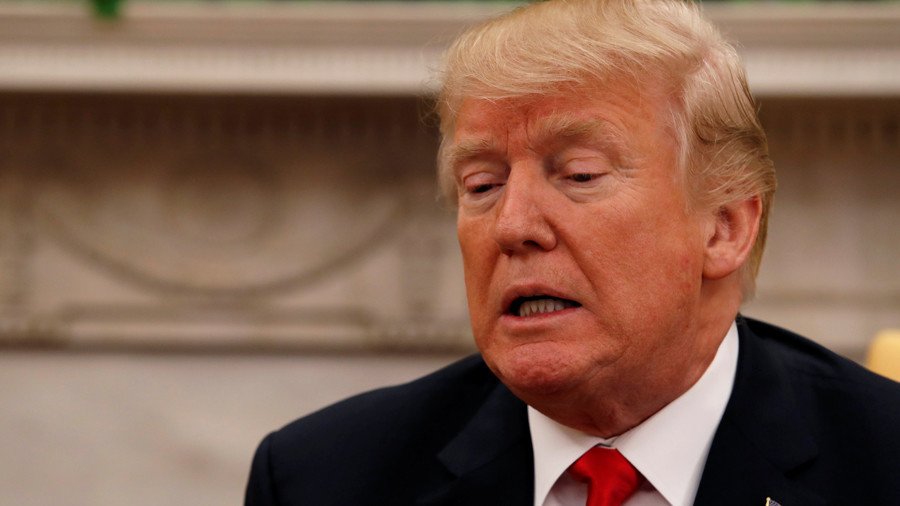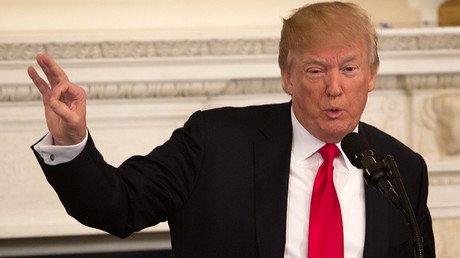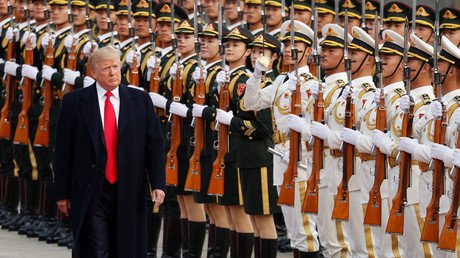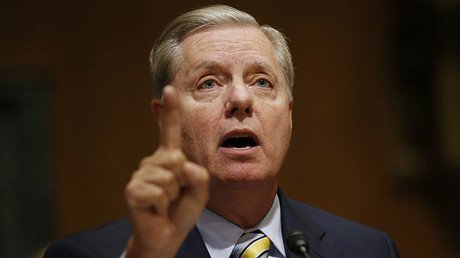‘Future of US-N. Korea relations hinges on Washington’s attitude’

It wasn’t North Korea but the US that first violated agreements in the past, analysts told RT. The US has maintained the posture of regime change in North Korea since the 50s, they said.
North Korea is willing to freeze its nuclear program if the US engages in talks, according to South Korean officials who returned from a meeting with Kim Jong-un in Pyongyang.
Meanwhile, South Korean President Moon Jae-in said on Wednesday it was “too early to be optimistic” about Pyongyang’s offer to discuss denuclearization with the United States.
US President Donald Trump said on Twitter that although “possible progress [was] being made in talks with North Korea,” it “may be false hope, but the US is ready to go hard in either direction!”
RT discussed this issue with Christine Hong, professor in east Asian studies at the University of California in Santa Cruz, and Gregory Elich, board member of the Korea Policy Institute.
RT: We've gone from threats of all-out war to North Korea apparently offering to freeze its nuclear activity. How much of a breakthrough is this?
Gregory Elich: It is very early yet and, at this point in time, we don’t have a lot of information about the details of the dialogue between the South and North Korean delegations. What we’ve heard so far is very promising indeed. But everything hinges on the attitude of the US.
A few days ago, KCNA, the North Korean news agency, issued a statement saying that it has always been in favor of resolving issues through dialogue and peaceful negotiations. But it’s also believed that the negotiations should be on a basis of equal footing – that is the key there.
The Trump administration is… demanding North Korea denuclearize as a precondition of negotiations, and it approaches the concept of negotiations as if it just needs to deliver an ultimatum and North Korea needs to fold. North Korea’s attitude is that this should be on the basis of mutual respect and the norm of the give and take of the negotiations. So, everything depends on what attitude the Trump administration actually takes when it comes time for the two sides to negotiate.
RT: US officials have expressed skepticism over North Korea's offer, saying they've offered to denuclearize before and it came to nothing. Is there any reason to think it will be different this time?
GE: Each time that agreement was reached in the past between the US and North Korea on denuclearization, it was the US that first violated the agreement. So, for instance, the agreement in 2005, within days of the signing of the agreement, which obligated the US for its part to start to normalize relations with North Korea, instead, the Bush administration imposed sanctions on Banco Delta Asia, which is one of the main banks that North Korea used to conduct its foreign trade. The Treasury Department sent officials throughout the world pressuring foreign banks to cut off financial relations with North Korea. They took the opposite approach and killed the agreement.
The same thing with other agreements. So, it wasn’t North Korea that first violated the agreements, it was the US. That has been the pattern but this is not the story that you hear in the mass media.
RT: We couldn't have seen this U-turn coming through a few months ago. Is this really what it seems?
Christine Hong: Everyone should understand that this breakthrough is not a result of Trump’s maximum-pressure strategy toward North Korea. This opening that we are seeing is because of inter-Korean dialogue, for one. But also because North Korea has demonstrated within the past year that it is not only a nuclear state but it is a nuclear state that has a capacity to strike the US. This is what has opened up this possibility. Because all throughout the Barack Obama period, even though North Korea desired dialogue, Obama studiously maintained a posture of non-engagement. And, thus far, Trump has also followed suit in maintaining a very hard line toward North Korea. Now, at this particular juncture, because of the transformation of the North Korea situation, and because of the strides made between the two Koreas – and these are inter-Korean relations in which the US in the post-Cold War period has historically intervened – it is because of this that we are seeing this.
Now both sides are ready to recognize that North Korea is a nuclear-weapons power, that this is an accomplished fact. And, instead of going step by step, a very peaceful approach, they may perhaps be ready to talk about a wholesale agreement – that is to say, some kind of denuclearization pitch on the part of North Korea in return for diplomatic relations with the US, and also some kind of security guarantee from the US. – Joseph CHENG, professor of political science at Hong Kong City University
RT: After decades of false starts, is there any reason to think it will be different this time and we can finally see a path to a long-term understanding between the two Koreas?
CH: It is an extraordinary offer of a possible concession. And let’s look at part of it: What is stated is that it needs to have a security guarantee, and the US has to – in formal ways – indicate that it won’t have a hostile policy toward North Korea. So, the question is, What does that mean for North Koreans? Because the US’ posture historically has been one of regime change toward North Korea from the middle part of the 20th century to the current moment.















